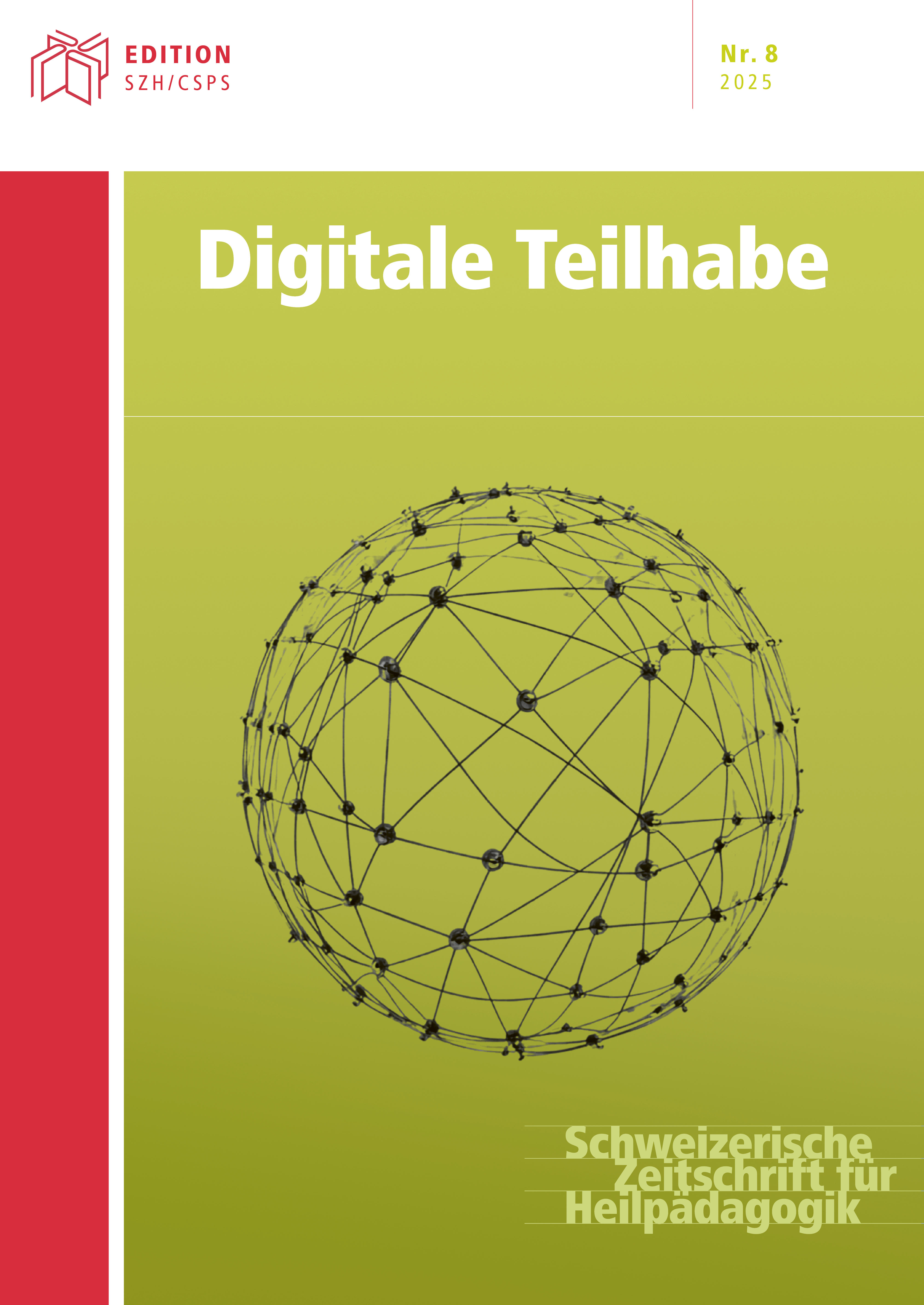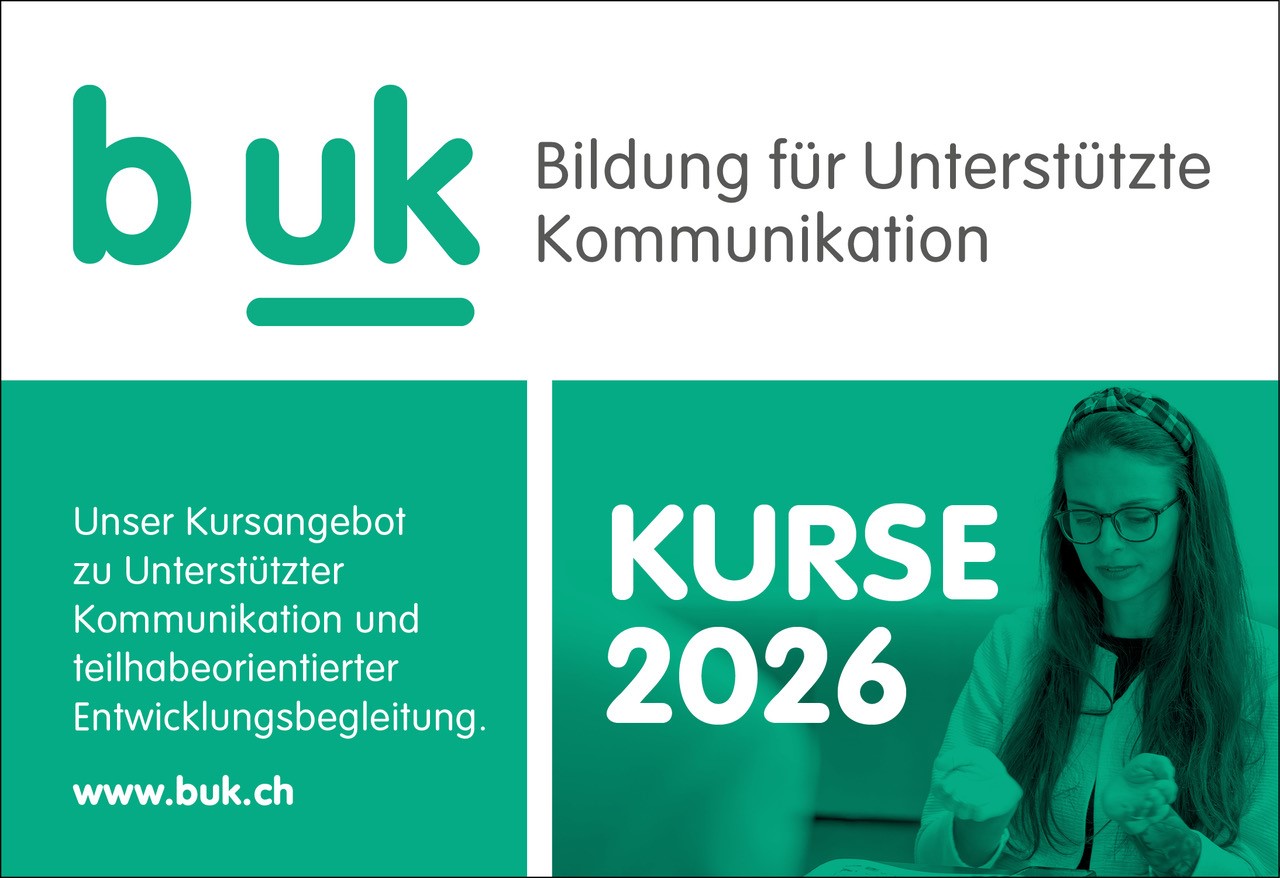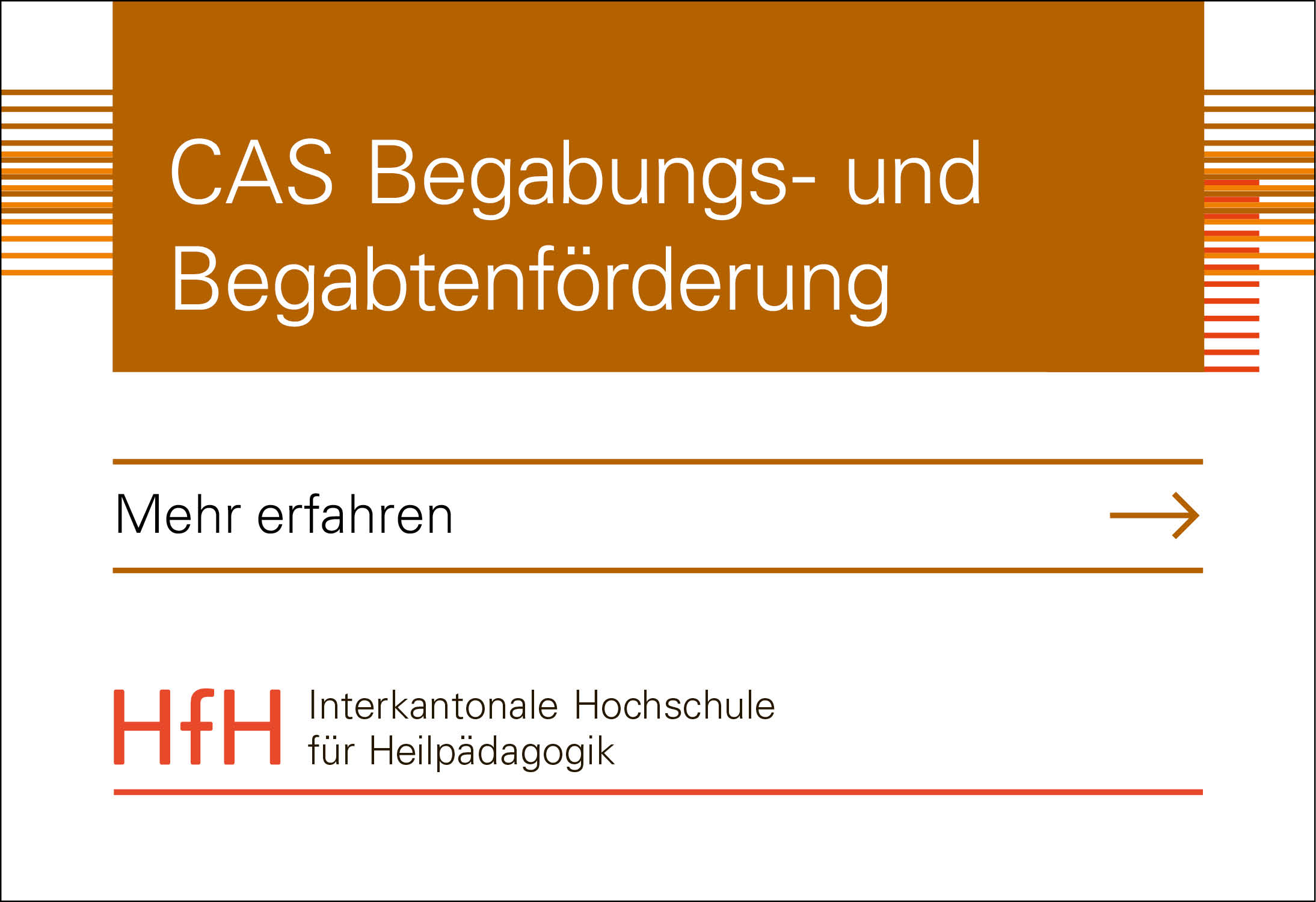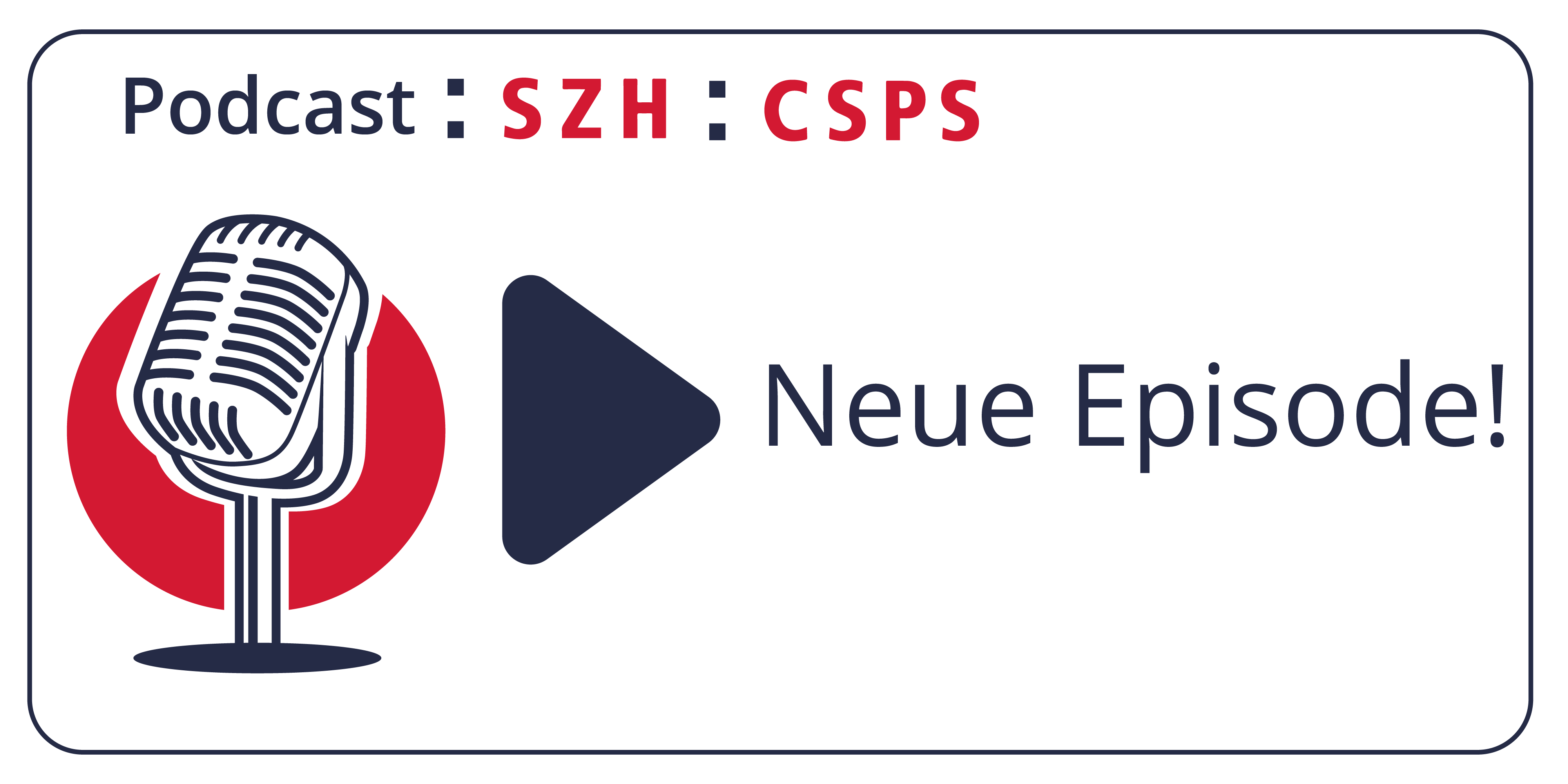Transformative (inklusive) Bildung im Kontext der Entwicklung von Künstlicher Intelligenz
DOI :
https://doi.org/10.57161/z2025-08-06Mots-clés :
compétence numérique, égalité des chances, inclusion, intelligence artificielle, participation, transformation numériqueRésumé
Le développement rapide de l’intelligence artificielle transforme profondément l’éducation et la participation sociale. Si les systèmes d’intelligence artificielle offrent des possibilités d’inclusion, ils font également apparaitre de nouveaux risques touchant particulièrement les groupes vulnérables. Cet article analyse de quelle manière les inégalités digitales sont amplifiées par l’IA. La solution pourrait être l’éducation transformatrice qui ne se contente pas de transmettre du savoir, mais qui encourage également la réflexion critique et la participation active. Ces trois principes pédagogiques illustrent la façon dont les écoles peuvent aborder conceptuellement les systèmes d’IA : des espaces de réflexion, une analyse critique des médias et des projets de conception participative, afin de contribuer à rendre l’IA inclusive, équitable et orientée vers la pratique.
Références
Autenrieth, D. (2025). Transformative Bildungsprozesse und Partizipation. Eine empirische Untersuchung im Kontext von Künstlicher Intelligenz und der Lehrkräftebildung. kopaed.
Autenrieth, D., Schluchter, J.-R. & Schulz, L. (2025). AI is all you need? Künstliche Intelligenz, gesellschaftliche Teilhabe und Perspektiven transformativer Bildung auf die Herausforderungen eines AI Divide. Zeitschrift für Inklusion, 3, 19–42.
Bengio, Y., Mindermann, S. & Privitera, D. (2025). International AI Safety Report (No. DSIT 2025/001). https://assets.publishing.service.gov.uk/media/679a0c48a77d250007d313ee/International_AI_Safety_Report_2025_accessible_f.pdf
Boateng, O. & Boateng, B. (2025). Algorithmic bias in educational systems: Examining the impact of AI-driven decision making in modern education. World Journal of Advanced Research and Reviews, 25, 2012–2017. https://doi.org/10.30574/wjarr.2025.25.1.0253
Bohmann, S., Fiedler, S., Kasy, M. B., Schupp, J. & Schwerter, F. (2025). Cash Transfers, Mental Health, and Agency: Evidence from an RCT in Germany. https://maxkasy.github.io/home/files/papers/supplement_cash_mentalhealth_agency.pdf
Carter, L., Liu, D. & Cantrell, C. (2020). Exploring the intersection of the digital divide and artificial intelligence: A hermeneutic literature review. AIS Transactions on Human-Computer Interaction, 12 (4), 253–275.
Fend, H. (2008). Neue Theorie der Schule: Einführung in das Verstehen von Bildungssystemen (2., durchges. Aufl.). Springer VS.
Institut für Arbeitsmarkt- und Berufsforschung (IAB) (2025). Erwerbsbeteiligung, Armut und Sozialpolitik. Institut für Arbeitsmarkt- und Berufsforschung der Bundesagentur für Arbeit. https://iab.de/themen/erwerbsbeteiligung-armut-und-sozialpolitik/ [Zugriff: 08.09.2025].
Laros, A., Fuhr, T. & Taylor, E. W. (2017). Transformative learning meets Bildung: An international exchange. Sense Publishers.
McElvany, N., Lorenz, R., Frey, A., Goldhammer, F., Schilcher, A. & Stubbe, T. C. (Hrsg.) (2023). IGLU 2021: Lesekompetenz von Grundschulkindern im internationalen Vergleich und im Trend über 20 Jahre. Waxmann.
Morozov, E. (2014). To save everything, click here: The folly of technological solutionism (Paperback 1. Publ.). PublicAffairs.
Morris, M. R., Sohl-Dickstein, J., Fiedel, N., Warkentin, T., Dafoe, A., Faust, A., Farabet, C. & Legg, S. (2024). Levels of AGI for Operationalizing Progress on the Path to AGI (No. arXiv:2311.02462). arXiv. https://doi.org/10.48550/arXiv.2311.02462
Sengupta, U. (2020). How Monoculturalism, Aculturalism, and Postculturalism in Algorithmic Development Excludes a Variety of Contributions From Diverse Cultures. SSRN Electronic Journal. https://doi.org/10.2139/ssrn.3621779
Shams, R. A., Zowghi, D. & Bano, M. (2025). AI and the quest for diversity and inclusion: A systematic literature review. AI Ethics, 5, 411–438. https://doi.org/10.1007/s43681-023-00362-w
Shew, A. (2022). How To Get A Story Wrong: Technoableism, Simulation, and Cyborg Resistance. Including Disability, 1, 13–36. https://doi.org/10.51357/id.vi1.169
Shew, A. & Earle, J. (2024). Cyborg-Technology Relations. Journal of Human-Technology Relations, 2 (1), 1–19. https://doi.org/10.59490/jhtr.2024.2.7073
Singer-Brodowski, M., Förster, R., Eschenbacher, S., Biberhofer, P. & Getzin, S. (2022). Facing Crises of Unsus-tainability: Creating and Holding Safe Enough Spaces for Transformative Learning in Higher Education for Sustainable Development. Frontiers in Education, 7, 787490. https://doi.org/10.3389/feduc.2022.787490
van Dijk, J. (2020). The Digital Divide. Polity Press.
Varsik, S. & Vosberg, L. (2024). The potential impact of Artificial Intelligence on equity and inclusion in education (OECD Artificial Intelligence Papers No. 23). OECD. https://doi.org/10.1787/15df715b-en
Walgenbach, K. (2023). Digitaler Ableismus im Feld der Bildung. MedienPädagogik: Zeitschrift für Theorie und Praxis der Medienbildung, 20, 1–26. https://doi.org/10.21240/mpaed/jb20/2023.09.01.X
Wang, C., Boerman, S. C., Kroon, A. C., Möller, J. & de Vreese, C. (2024). The artificial intelligence divide: Who is the most vulnerable? New Media & Society, 27 (7), 3867–3889. https://doi.org/10.1177/14614448241232345
World Economic Forum (2025). Future of Jobs Report 2025. World Economic Forum.
Téléchargements
Publiée
Comment citer
Numéro
Rubrique
Licence
© Daniel Autenrieth, Jan-René Schluchter, Lea Schulz 2025

Ce travail est disponible sous la licence Creative Commons Attribution 4.0 International .









